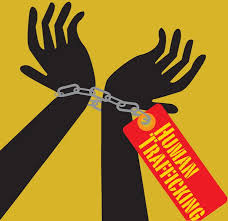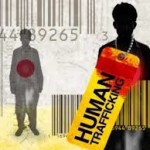
Thai PBS on 26 September 2015,
The Royal Thai Police will soon introduce the biometric technology at immigration checkpoints across the country to help officials screen criminals and people who could pose security risk to the country from entering the country easily.
This biometric technology identifies individuals based on their body characteristic including facial patterns and fingerprints.
The move came as the Immigration Police Bureau became the target of criticism in the past few months of its performance when some illegal immigrants claimed to have paid to gain entry and some travellers entered the country as tourists but with either fake passports or authentic passports of others but with different photos.
Lack of sophisticated equipment to double check passport and verification of passport owners, and understaffing were the excuses.
Human traffickers also used the loopholes in immigration system to smuggle illegal immigrants as well.
Several senior immigration officers were transferred when fake passports were seized from these travellers and a proposal to overhaul the bureau was raised.
One proposal raised to efficiently stop such entry was the use of this technology.
This advanced technology could cost over a billion baht and only two ASEAN countries at present apply it in their immigration system, according to Royal Thai Police assistant commissioner Pol Lt Gen Prawut Thavornsiri.
He said biometric technology is a matching device as it records personal information of individuals and is able to alert users of any change of the individuals’ information within a short period of time.
Biometric technology can analyse 120 million images or fingerprints per second with accurate results.
It can also analyse other body characteristics such as eyes, blood vessel in fingers and DNA.
The technology is widely used in Europe and America.
Malaysia and Singapore are currently the two countries in the Southeast Asian region that implement the technology to help determine people at immigration checkpoints.
Biometric technology could play crucial role in Thailand’s border security and it would be the first defensive line to protect the country from transnational crimes, according to the assistant commissioner.
Meanwhile deputy police commissioner Pol Gen Wuthi Liptapanlop explained that there are eight types of passport book frauds.
Most frauds concern use of stolen passport by imposters. It is difficult to indentify an individual from a passport image alone, especially when the person look alike the picture.
But with the technology, this could be swiftly detected, he said.
Other frauds concern fake name and fake stamp, he said.
Next year, Thailand will enter the ASEAN Community and it is expected to encounter huge influx of goods and people from the nine other ASEAN member countries as well as transnational problems such as human trafficking, terrorism and cyber crime.
This biometric technology could help protect the country from these problems.
Statistically, around 45 million passport books are lost every year. Each year, some 1,800 faked passports were confiscated at the Suvarnabhumi International Airport, he said.
The Royal Thai Police has proposed the government to purchase the biometric technology and install it at all 1,000 immigration checkpoints, provincial police offices, public security offices and forensic offices.
This advanced technology will cost over a billion baht.
Besides it needs staff training to work with the system.
Over 400 police officers and detectives have been sent to transnational crime investigation training.




